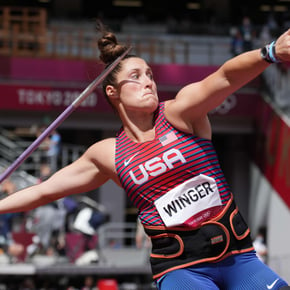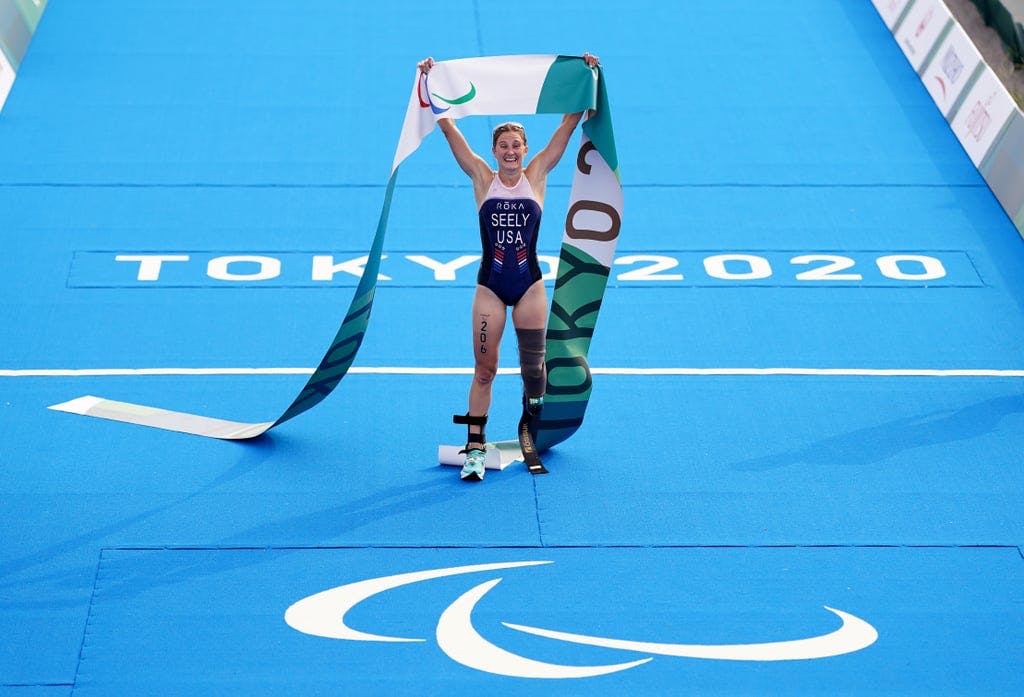 Photographer: Getty/John Walton - PA Images
Photographer: Getty/John Walton - PA Images
“The morning I got home {from Tokyo}, I was up at like 2:30 and by 4:00, I couldn't stay in bed any longer. So I got up and I went and pulled like three months’ worth of weeds. All I could think of is … I don't usually read those gossip magazines, but it's like, ‘Stars, they're just like us.’ And as I'm pulling literally hours worth of weeds, all I can think is, ‘Paralympians, they're just like us.’”
Those words from Allysa Seely, who is the first woman in world history and the first American ever to earn back-to-back Gold medals in the triathlon at Olympic or Paralympic Games when she won her PTS2 Paratriathlon races in Rio (2016) and Tokyo (just a few short weeks ago).
Allysa is just like us: She loves her dogs (Mowgli, golden retriever service dog, and Bentley, chocolate lab who quit her service dog job and is living her best life), her friends and family, and the beach (where she’s known to take Mowgli for a fun day and an open-water swim).
The perseverance in this woman, though, is on a different level.
A Phoenix native, she started competitive triathlons in 2008 while a student at Arizona State University. A few years of chronic pain and neurological symptoms ended with a myriad of medical diagnoses and her first brain and spine surgery, after which (seven weeks later) she competed at the USA Collegiate Triathlon National Championships. She’s still the only person with a disability to do so. By 2012, she was competing in Paratriathlon on the world stage, already earning global medals. Complications from her diagnoses in her left foot resulted in amputation of that leg below the knee in 2013, but two years later-on a prosthetic that she’s said works much better for her than her original limb-she was a World Champion. She earned a second World title prior to the Rio Paralympic Games in 2016, and went on to win Paratriathlon’s inaugural Gold medal in Brazil.
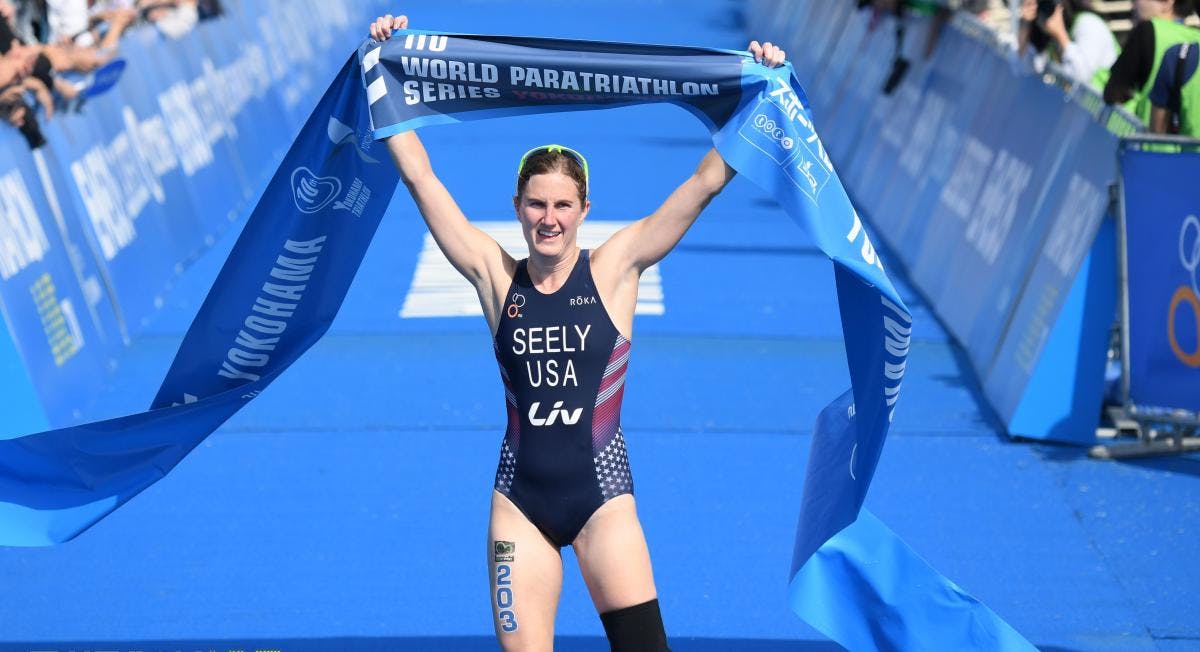 Photographer: Delly Care/ITU Media
Photographer: Delly Care/ITU Media
“That year going into Rio ... I mean, every year has its ups and downs, but overall it was pretty chill for me. It was the smoothest sailing possible … The confidence of going into each race and feeling prepared, knowing I had done the work. When I walked up to that dock in Rio, I knew as long as I could go out there and do my best, it would be very, very hard to beat me.”
Ask Allysa what she remembers about her first Paralympic race though, and it’s not making history, or what she overcame to get there. It’s her family.
“Even with Rio, people always ask, ‘How does it feel grabbing the banner?’ I don’t even remember it, to be honest. But what I do remember is my brother running alongside of me, my sister running around the course trying to FaceTime the race because it wasn't broadcast so all of our friends and family at home knew what was going on. Those are the moments.”
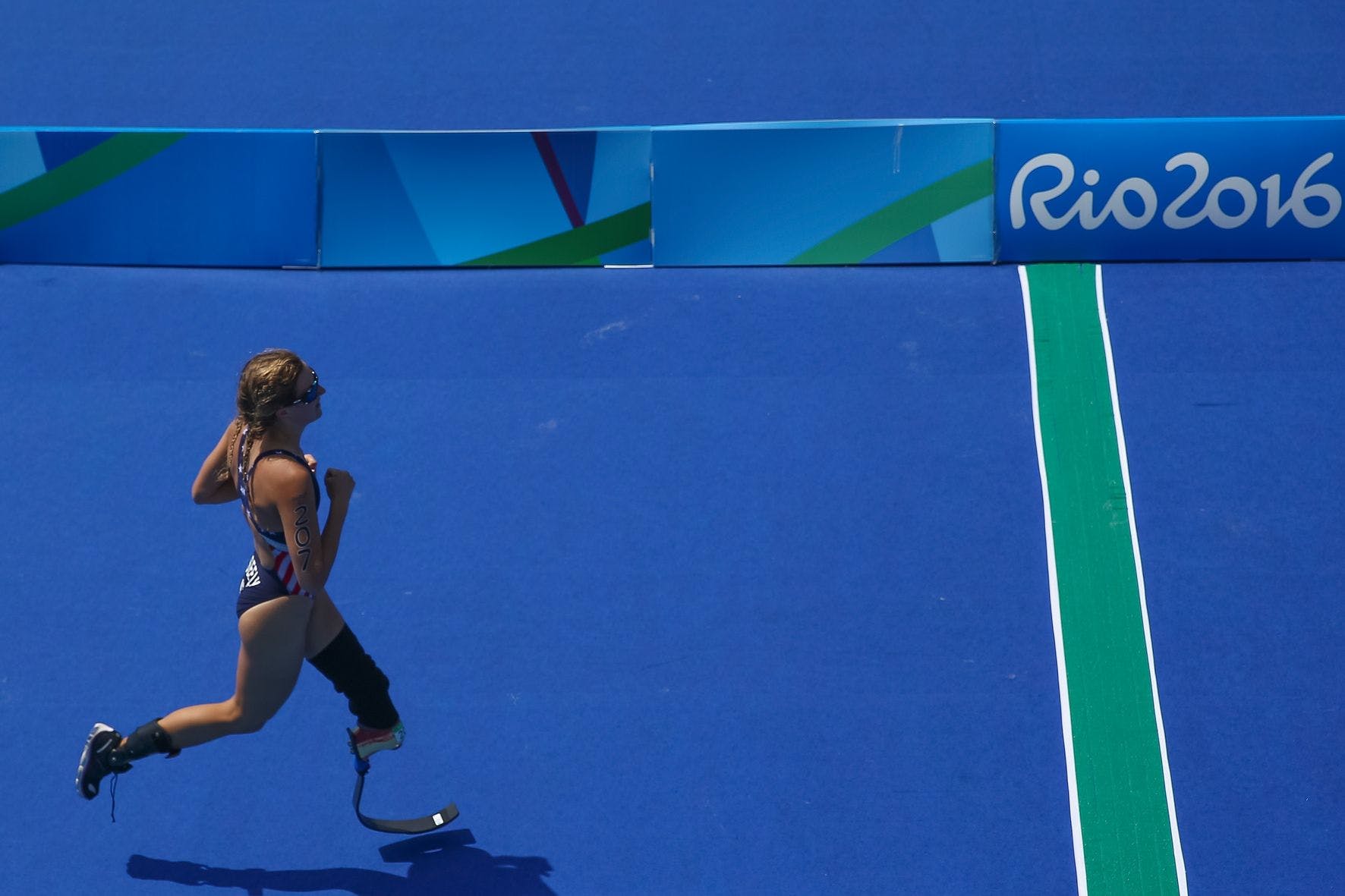 Photographer: Buda Mendes/Getty Images
Photographer: Buda Mendes/Getty Images
More success and world titles followed, and everything was going to plan, until 2020. Relatable.
“For most people, the chaos started with COVID in March. For me, it started on January 1st.”
Two different surgeries in rapid succession for an infection in her amputated leg meant she hadn’t trained at all for the 3 months prior to a Tokyo selection race in Florida in March. Unrelenting competitor that she is, Allysa showed up.
“I go to bed that night, everything's packed and ready. I literally still hadn't put a leg on, and I hadn't put a leg on in so long that I forgot any left shoes! At 2:00 AM, a message came across that the event was canceled.”
Event cancellations and the postponement of the Paralympic Games due to the pandemic would end up being just what this defending champion and fighter would need to, once again, come out on top.
Allysa’s unique combination of medical diagnoses mean that she is immunocompromised. She’s simply more susceptible to certain things than other people, and her astounding toughness means that, sometimes, she doesn’t “look” sick, even if she really, really is. July of 2020 onward, she experienced high fevers, was in and out of emergency rooms, had countless rounds of bloodwork, and continually advocated for herself and how terrible she felt, eventually getting some answers in October.
“Everybody's like, ‘You have this infection.’ I'm like, ‘No shit. I've had it since July.’”“I guess for most people, this (a bacteria that lives on human skin) doesn't typically cause problems, but it became a major one for me.”“The infection in my blood, because it had sat for so long, turned into an infection in my heart.” (endocarditis)“On the one hand, I'm glad somebody's finally treating this infection. On the other hand, I'm like, ‘How long is this going to take?’”
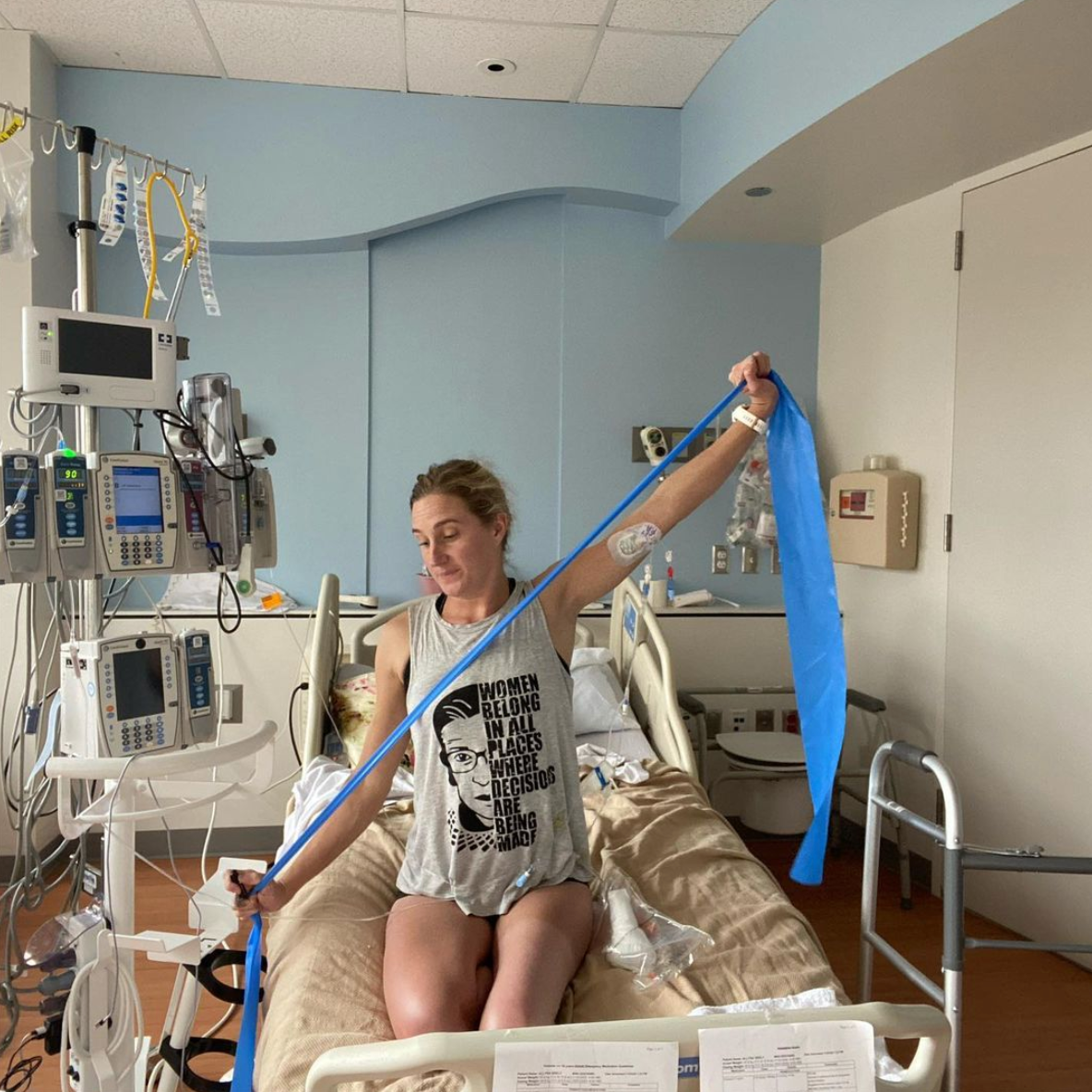 Courtesy of Allysa Seely
Courtesy of Allysa Seely
She spent four and a half months in a hospital in Texas.
“I lost 20 pounds of muscle, almost died a few times. By the time I was finally ‘cleared’ to start working out, it was only three days a week for like 10 minutes at a time, not even to start training. And this is literally a few weeks before the event that would, again, in March, be qualification.”
That race was again postponed until June, and Allysa began a few months of stops and starts in training, self-described imposter syndrome, and some relinquishing of her trademark stubbornness and independence.
“I really was put in a position that I had no choice but to ask for help. It finally made me be super open and transparent with my friends. The amount of support I received was unbelievable. My best friends turned into my teammates. The workouts that I didn't have the confidence to do by myself, somebody was there to train with me.”
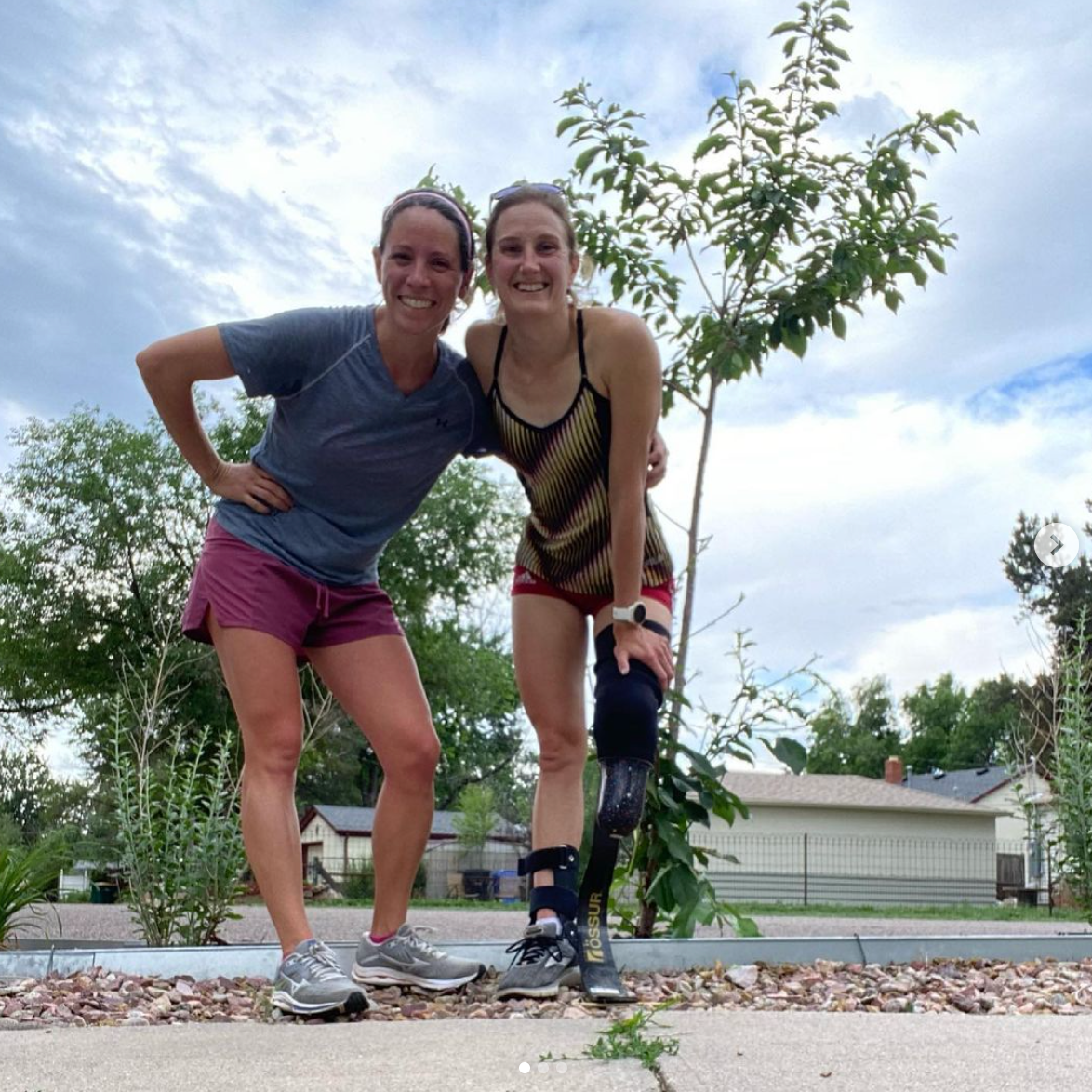
Courtesy of Allysa Seely
“One morning, I had a workout with one of my close friends and I broke down in tears. And she said, ‘If this is not something you want to do, we're all going to be here anyways, but I'm not going to let you make the decision on a bad day.’ If I had changed my mind and I didn’t want to go, nothing would have changed for them. Those people would have been just as much there in the next phase as they were for this one. That was really incredible.”
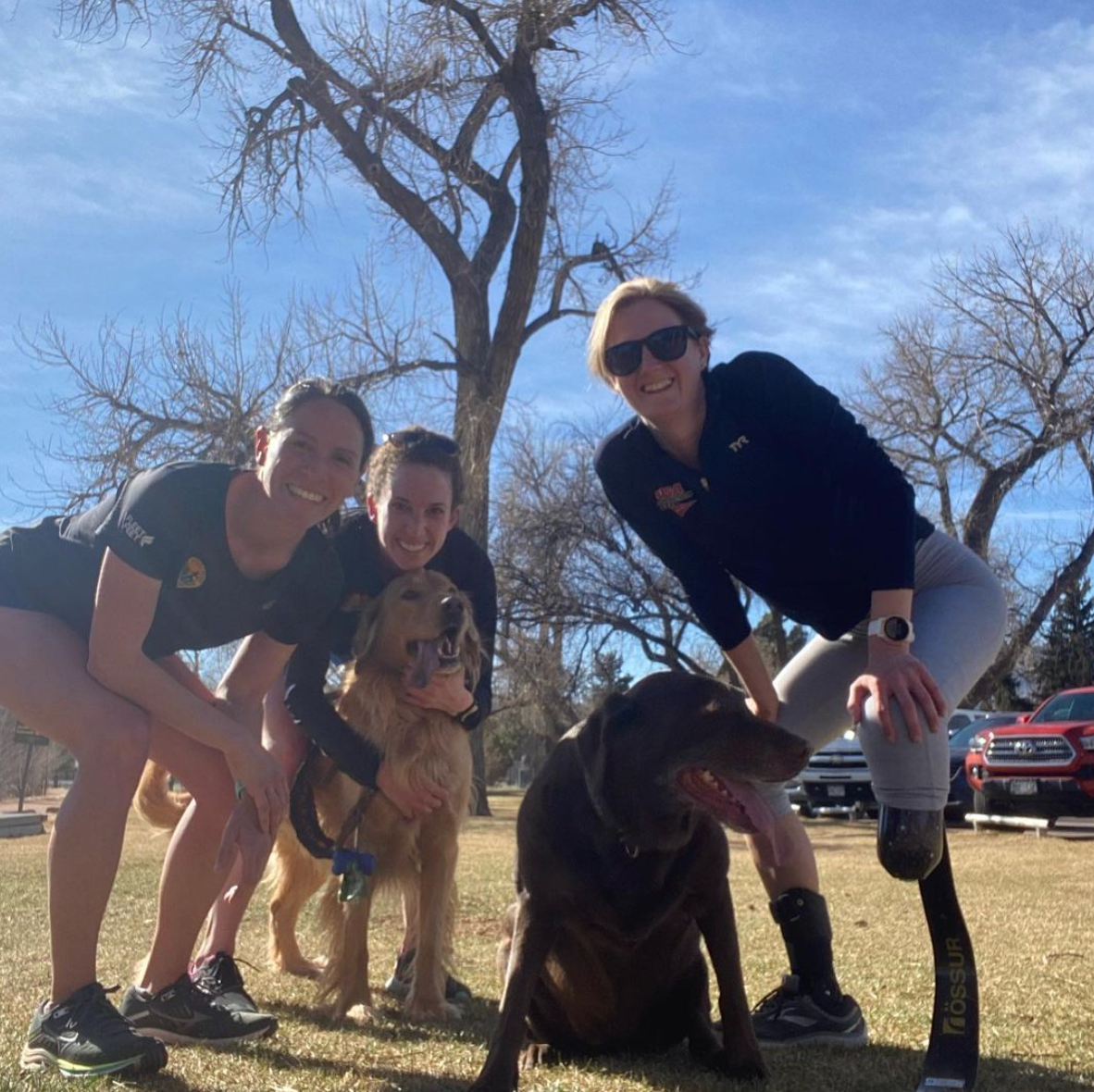 Courtesy of Allysa Seely
Courtesy of Allysa Seely
Allysa continued this uncertain work, and her friends continued to encourage her natural tenacity. She made it to the starting line in June, and although she says she was mortified to show up to a race as unprepared as she felt, managed to finish second and secure a spot on the Tokyo team, set to compete eight short weeks later.
“You don't want to cram for a test in school. You don't want to cram for the biggest race in five years either, but here we are. This was my option and this was my choice, and I was going to do whatever I could, and so I did every day: Just showed up, did what I could, left, showed up, did what I could, and left. It wasn't until a week and a half before the race in Tokyo that something finally clicked and just one day, I was like, ‘I'm going to win.’ And all of the sudden, it was like I was back. The competitor was back. I was ready to go race.”
And the rest is, literally, history. Allysa says that Paris 2024 has always been a goal in the back of her mind, and that it’d be difficult to turn down Los Angeles 2028 if she were that close to it. But, she’ll walk away satisfied if there’s a time that she doesn’t love it or isn’t getting better. It’s always been about being her best for her, and clearly, she has an incredible support system-for sport and beyond.
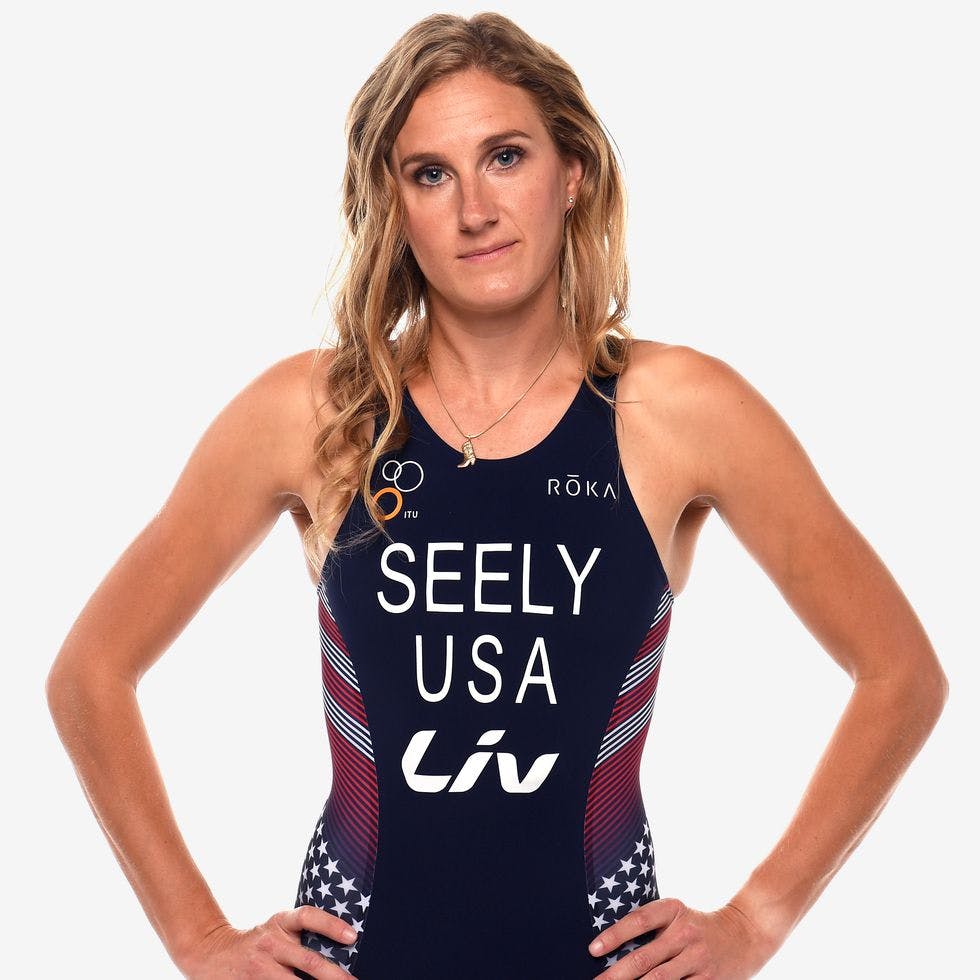 Photographer: Harry How/Getty Images
Photographer: Harry How/Getty Images
“It's amazing, don't get me wrong: I had so much fun racing. But the moments I go back to are my people, getting up at 5:00 AM to go work out with a friend who has to be at work at 8:00, but she's going to get up because it means that much to her and to me. That's everything those medals stand for. The real success is the amazing times you have with all the people. It's the journey. How many athletes that are way more successful than I am have said the same thing?”
“We're all just humans. When you're inside of it and you do know all of these Olympians or Paralympians, you're like, ‘Oh yeah, they're just a person.’ They're a person first, and somewhere after that, they're an athlete. But as athletes, we all understand that success is so much more than just a medal count.”
This Paralympic Champion, who has and will continue to overcome so much, is just like us.
